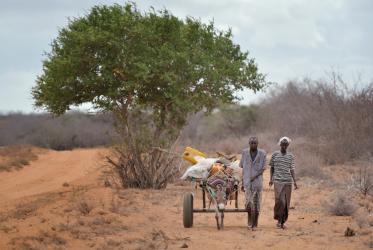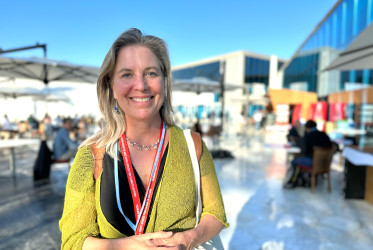Displaying 41 - 60 of 132
Churches respond to Malawi cyclone disaster
29 March 2023
Zur Verwandlung aufgerufen Ökumenische Diakonie
15 February 2023
HIV dan AIDS, Jejaring Masyarakat Sipil serta Sektor Lintas Agama
Pelajaran dari keterlibatan strategis di Indonesia, India, Republik Dominika, dan Jamaika
13 February 2023
Redes de la sociedad civil en VIH y SIDA y actores religiosos
Lecciones aprendidas del involucramiento estratégico en la India, República Dominicana, Indonesia y Jamaica
07 February 2023
HIV and AIDS Civil Society Networks and the Faith Sector
Lessons Learnt from Strategic Engagement in India, Dominican Republic, Indonesia, and Jamaica
31 January 2023
Neddy Astudillo at COP27: “We still have the power to protect life”
18 November 2022
Christian Brooks: “Faith and climate really go hand-in-hand”
14 November 2022
Walk the Talk
A Toolkit to Accompany the "Roadmap for Congregations, Communities and Churches for an Economy of Life and Ecological Justice"
09 November 2022
Walk the Talk
A Toolkit to Accompany the "Roadmap for Congregations, Communities and Churches for an Economy of Life and Ecological Justice"
09 November 2022
















